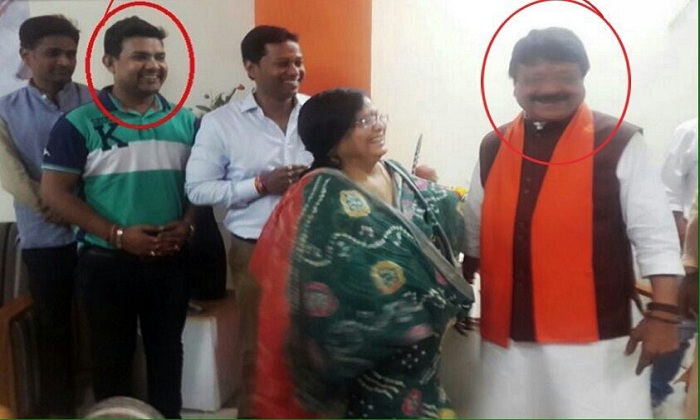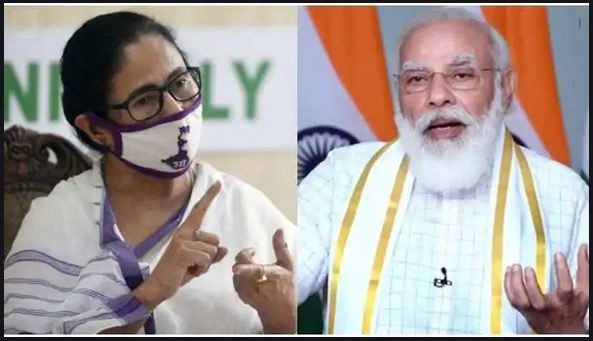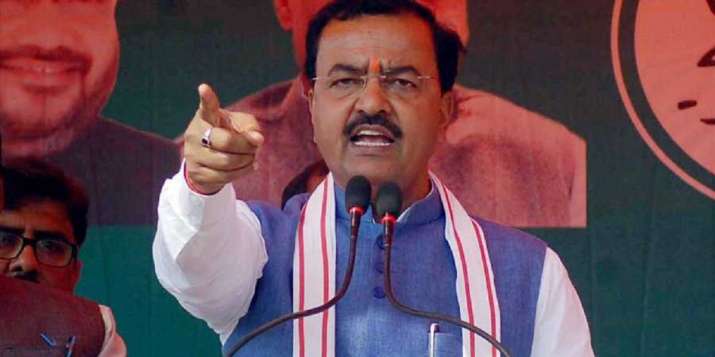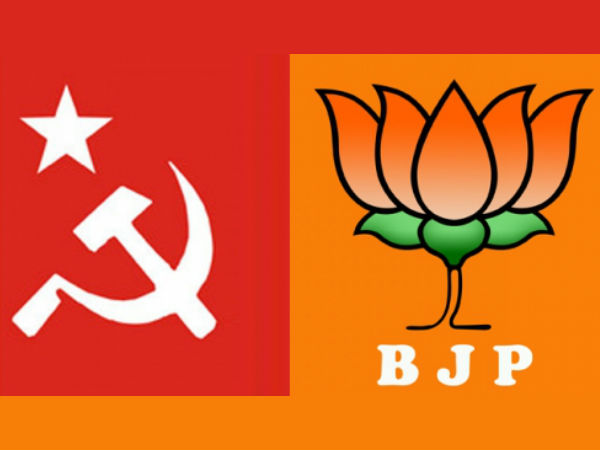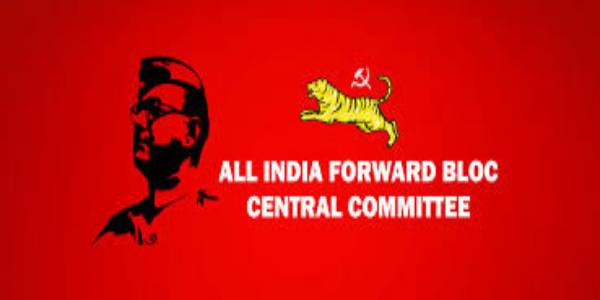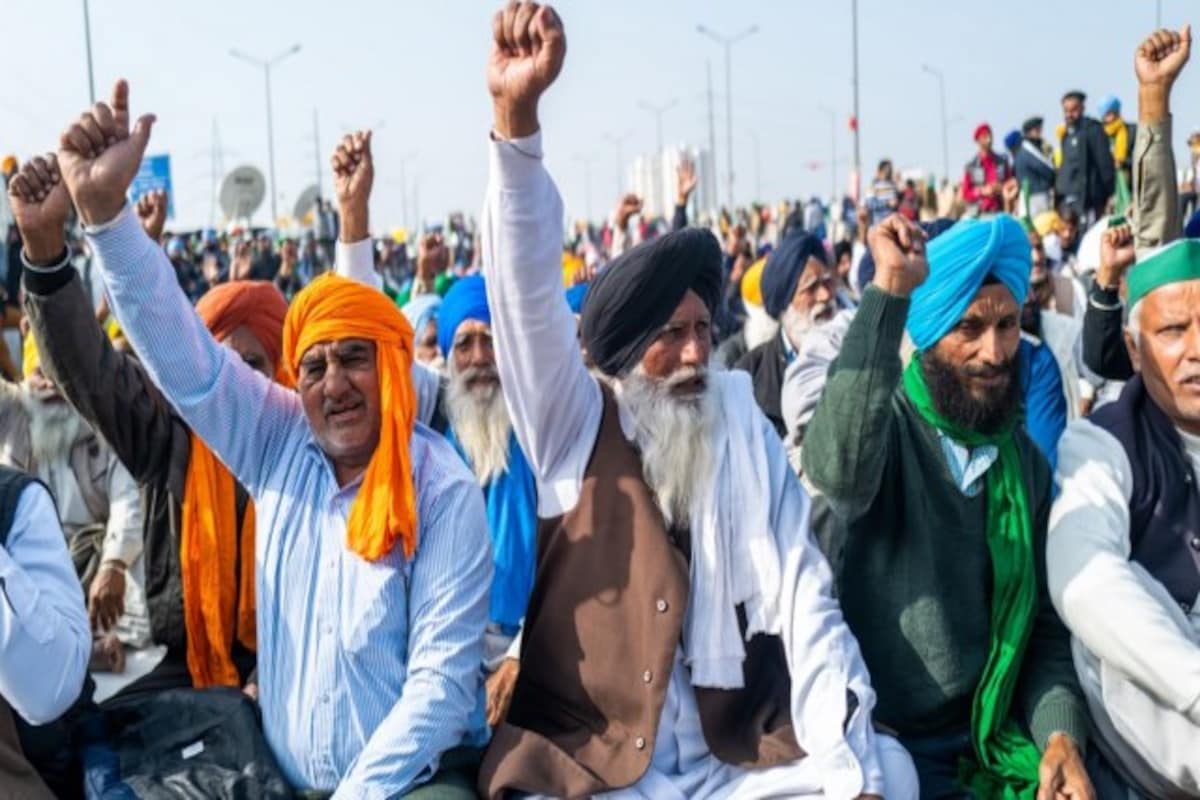On Monday, in the run-up to the West Bengal election, to announce her candidature from the East Medinipur assembly constituency, West Bengal Chief Minister and TMC supremo, Mamata Banerjee returned to Nandigram. The move came as an attempt to take the Bharatiya Janata Party (BJP) head-on in what is increasingly looking to be her toughest political battle, from a place that in many ways had re-launched her a decade ago.
“I will contest from Nandigram. It is my lucky place.” she said, addressing a rally in the town, while reassuring voters from her constituency, Bhowanipore (in South Kolkata), that she would either field a good candidate, or might even contest from both seats.
Also See: Trilateral fight in West Bengal election
The move serves the twin purposes of snubbing the BJP and showing solidarity with farmers in the context of the farmers’ protests. Adhikari, who recently defected over to the BJP, had contested from Nandigram in 2016. Among those who have switched sides, Adhikari is considered to be the biggest loss of TMC. This was because he was having a considerable influence not just in his hometown, East Medinipur, but also in Purulia, Bankura and West Medinipur. Reacting to Banerjee’s announcement, BJP President (Bengal unit), Dilip Ghosh, said that Banerjee has decided to contest from Nandigram because she was looking for a “safe seat”.
Also Read: Dilip Ghosh asked Chatradhar Mahato to leave TMC and join BJP
Adhikari, too, threw a challenge at Banerjee and said that if she is not defeated by a half lakh votes then he would quit politics. “If I am fielded by my party from Nandigram, I will defeat her by a margin of at least 50,000 votes or I will quit politics,” he stated. Adhikari, however, said that unlike the TMC, which is run “autocratically” by Banerjee and her nephew Abhishek, in BJP, the candidates are decided after discussion and it was for the party to take a call on his candidature. “I donot know from where I will be fielded, or whether I will be fielded,” he said, addressing BJP workers after a three-km roadshow.
Also See: West Bengal election 2021: Battleground for BJP and TMC
Nandigram, it may be mentioned, has a dominant Muslim population and it may not be an easy win for BJP for more reasons than one.
Political commentator, Sabysachi Basu Ray Chaudhury, dubbed Mamata Banerjee’s decision to fight the polls from Nandigram, a political masterstroke. SBR Chaudhury added, “She has cornered Suvendu on the one hand and is also trying to connect with nationwide farmer-agitation.”
The Trinamool Congress is opposed to the Centre’s farm laws. Banerjee, it may be mentioned, was catapaulted to power on the back of a farmer-movement and an agitation against land-acquisition in Nandigram and Singur. The decision can surely bring Mamata Banerjee closer to the farmers’ protests.
Banerjee is presently an MLA from Bhawanipore constituency. “Nandigram is my elder sister and Bhawanipore is my younger sister. I will give a strong candidate from Bhawanipore also. I may fight from both seats. I am requesting our party president Subrata Bakshi that they should consider my candidature from Nandigram,” she said.
What is Mamata’s strategy to counter Adhikari and BJP?
The districts of Medinipur East and West have 16 and 18 constituencies, respectively. Mamata Banerjee made a pre-emptive move by ousting Suvendu Adhikari’s father and brother from Trinamool Congress. Why did she do it? She was aware that they will also quit eventually. She wanted to view the battlefield with clarity.
Mamata is happy that Suvendu Adhikari did not launch a new party. A new party could have harmed Mamata’s political capital more. Now it is a battle clearly against BJP, its communalism, and Modi and Shah’s politics, not endorsed by a large section of Bengal-voters, according to Mamata.
Some leaders did not get importance during Suvendu’s time in TMC. Mamata has now transferred full authority to them. Leaders like Sufiyan and Abu Taher are now organizing rallies.
The actual Nandigram is 28 km from where the police firing took place. Mamata plans to hold another meeting there. She will devote more time in the area to retain TMC’s stronghold over there. Every constituency there has a significant number of Muslim voters who, according to Mamata, will not back Suvendu Adhikari as he now belongs to BJP.
Technically, the saffron party has no organization there. They are just using Suvendu Adhikari and ex-TMC workers. They are trying to win over the masses via Modi’s and Suvendu’s photographs. As a countermeasure, Mamata has put out her photographs in posters.
TMC workers are enthralled by the decision of Mamata to fight the election from Nandigram. Why? Since Suvendu Adhikari’s constituency is Nandigram, there were expected difficulties due to the sudden shift. It would also mean a chance to take the battle to the defectors like Suvendu. Although he is not contesting this election, BJP might set him up to campaign in areas where he was popular.
Mamata, in this decision, has essentially accepted Suvendu’s challenge that he had thrown at her at a recent rally saying that if she held a rally in Nandigram, he will do the same. So, now the fight will be between Mamata and Suvendu.
Apart from Muslims, many of the scheduled caste voters also may not support BJP as they have been loyal to Mamata. So, it remains to be observed how BJP will counter it.
Idea of Nandigram
Nandigram is not a single village. It is rather a symbolic crux of Bengal politics. It was through the Nandigram movement that Mamata tasted success. The movement had begun in Singur and ended in Nandigram.
In 2007, Nandigram faced a crisis when a police firing in connection with land acquisition for a 14,000-acre chemical hub project by Indonesia’s Salim Group killed 14 people. The then opposition had pegged the number of people killed at 50.
The incident brought the Opposition and the intelligentsia together who raised the slogan “Paribartan Chai”, which resounded through Bengal. Coupled with the land agitation movement led by Banerjee in Singur that drove out Tata Motors’ Nano project, it marked the beginning of end of the Left Front regime in West Bengal.
As for this year’s state election, Mamata will be holding many rallies and padayatras. And for farmers, whose numbers are significant in the area, she would be making certain announcements after February when election dates are published.
On Monday, Mamata sounded the bugle for her electoral war in Nandigram to combat Suvendu’s politics and oust the probability of BJP’s settlement in the area. Technically, Mamata wants to put a stop to BJP’s aspiration to rule in the area. And Nandigram is very symbolic in that aspect.
Monday’s crowd was pretty positive. So, tit-for-tat politics will continue but Mamata has faith in her people and she believes that only deep contact will make the victory possible.


